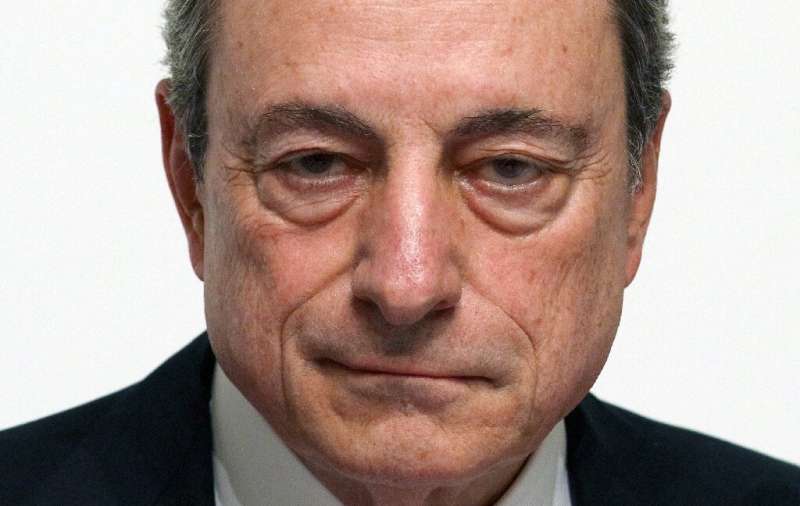ECB set to start countdown on new eurozone stimulus

The European Central Bank is likely to point Thursday to an interest rate cut in September, analysts say, although recent hints towards bucking up sluggish growth and inflation could even mean a move this week.
Rare high expectations for the summer gathering follow weeks in which the ECB itself has talked up the possibility of action.
With the US Federal Reserve expected to slash rates, Frankfurt had to "break the perception on markets that the ECB was cornered and had no more instruments", a source familiar with monetary policy discussions told AFP.
In June, ECB president Mario Draghi made clear that the threshold for new action was an "absence of improvement" in the inflation outlook, rather than worsening economic conditions.
While highlighting a resilient domestic economy, members at the ECB governing council table in Frankfurt will continue eyeing threats from abroad
They include US-led protectionism, the danger of a no-deal Brexit, weakness in emerging markets and geopolitical risks—such as growing tensions with Iran around key Gulf shipping routes.
Surveys have for months pointed to a slowdown in the second and third quarters from the 0.4 percent growth booked in January-March.
Weaker economic expansion in turn threatens the central bank's inflation target of just below 2.0 percent.
Inflation came in at 1.3 percent in June.
This week, "it seems as if the ECB will try to talk a very final talk before walking the walk" of rate cuts or even more drastic measures at its September meeting, ING economist Carsten Brzeski said.
Further below zero
Pictet Wealth Management strategist Frederik Ducrozet said "the most natural path" for central bankers would be opening their "forward guidance" policy statement to the possibility of lower rates.
In June, the ECB said rates will "remain at their present levels at least through the first half of 2020".
If and when it comes, most observers expect a cut of 0.1 percentage points, taking the amount lenders must pay on their deposits with the central bank to 0.5 percent.
Negative rates are designed to prod the financial system into lending and investing cash in the real economy, rather than parking it safely with the central bank or in government debt.
Banks have long complained of the negative rate burden, saying it undermines their business model.
Such harm could be salved with a "tiering" system to exempt some deposits from the harshest negative rate, as central banks in Sweden, Switzerland, Denmark and Japan have introduced, Ducrozet said.
Some analysts argue that the ECB could again unsheathe its other principal crisis-fighting weapon, mass "quantitative easing" (QE) purchases of government and corporate bonds, as early as September.
Net bond purchases under the scheme were brought to an end in December, although the central bank continues to reinvest the proceeds of its bond holdings.
'Proactively responding'
Comments from some senior ECB policymakers could even hint at sooner action.
"It is essential that a central bank shows consistency in its monetary policy decisions by proactively responding to shocks" that could distance it from its inflation target, recently-installed chief economist Philip Lane said in early July.
Pictet's Ducrozet highlighted that "there is no obvious justification for waiting until September"—apart from an ECB track record of action founded on the economic forecasts its staff issues each quarter.
While the US-EU trade confrontation remains on ice for now, knock-on effects from Washington's battle with China in particular continue to weigh on eurozone industry.
Along with other factors, that has prompted the ECB to repeat that "risks surrounding the euro area growth outlook remain tilted to the downside".
With the Italian economist set to hand the keys to the ECB to Christine Lagarde on October 31, "the risk... remains that Mario Draghi will try to surprise financial markets" before his departure, ING's Brzeski said.
"It would not be the first time."
© 2019 AFP





















